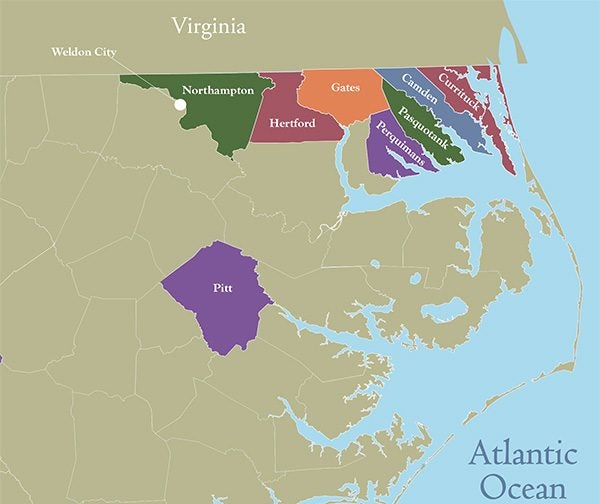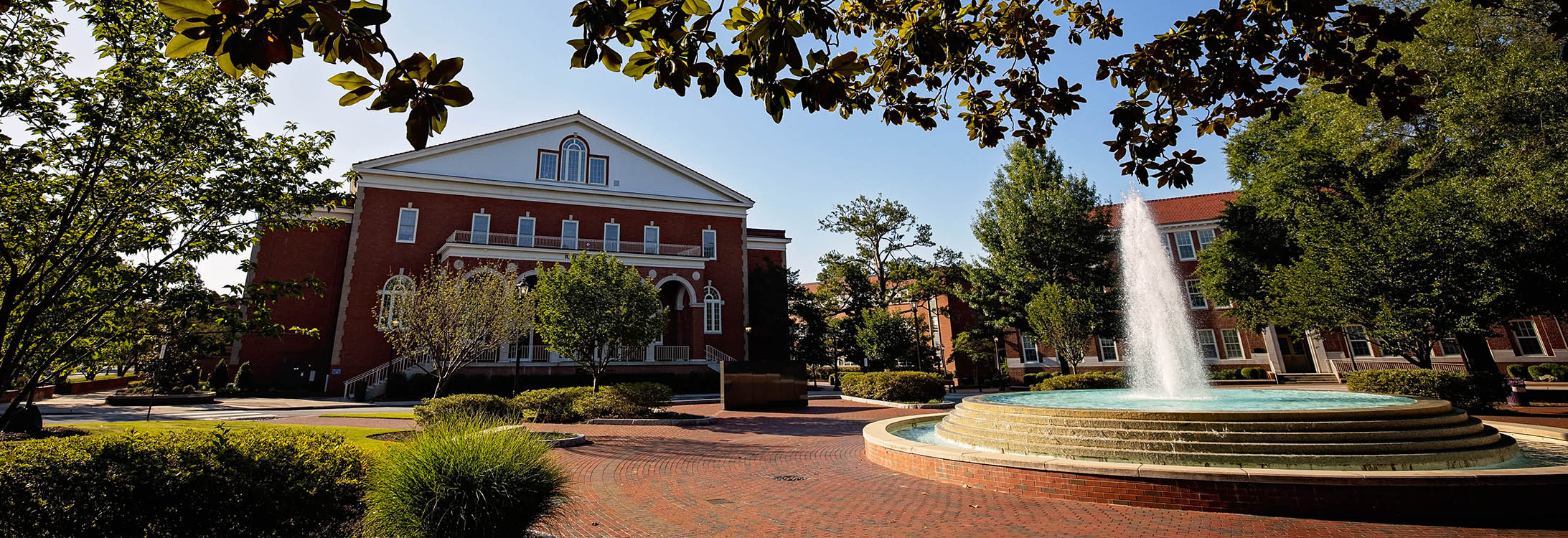PROVEN LEADERS
$3.7M grant funds ECU principal preparation program
East Carolina University’s College of Education received a $3.7 million grant to establish the PIRATE Leadership Academy for principal preparation to serve eastern North Carolina.
Department of Educational Leadership professors Dr. Hal Holloman and Dr. Karen Jones lead the program, which is funded by the UNC System’s North Carolina Principal Fellows program.
“The PIRATE Leadership Academy will prepare effective Principals who Innovate, Revitalize, Advocate and Transform Education,” Holloman said. “It builds on ECU’s nationally accredited principal preparation program, as it partners with 30 school districts in eastern North Carolina.”

The first eight PIRATE fellows are from school districts in northeastern North Carolina. (Graphic by Kristen Martin)
THE FIRST COHORT
The first eight fellows in the PIRATE Leadership Academy are from northeastern North Carolina school districts. They are:
Kristal Brooks – Gates County Public Schools
Jessica Prayer – Elizabeth City-Pasquotank Public Schools
Mara Swindell – Camden County Schools
Sharita Wade – Northampton County Schools
Lynetti Warden – Currituck County Schools
Patrice Watford – Hertford County Public Schools
Holly Winslow – Perquimans County Schools
Darrick Wood – Weldon City Schools
Eight PIRATE principal fellows will be admitted each year for the next five years. Each of the 30 school districts will have the opportunity to have one PIRATE fellow starting with the first cohort this fall in the northeastern region of the state.
“The ECU College of Education’s Department of Educational Leadership has been preparing individuals for decades to serve and lead K-12 schools and communities. This commitment to prepare highly qualified individuals to serve as school leaders is evidenced by the TP3 grant recently awarded to the Department of Educational Leadership. This grant serves as confirmation of the confidence state leaders have in the faculty in this department to produce school principals that will positively impact student learning and increase the quality of life for our citizenry,” said College of Education Interim Dean Art Rouse.
The academy will collaborate with superintendents and district leaders to identify and nominate proven teacher leaders who have not seriously considered pursuing an educational leadership degree due to time restraints, potential financial costs and other concerns.
“The fellow gets a win because they get to actually step out and immerse themselves in leadership training, leadership development, and personal and professional growth in a way that’s going to promote their own vitality,” Holloman said.
The goal is to train and revitalize future principals who will understand the realities of teacher burnout and will promote restorative and vitalizing practices for themselves and others. These principals will be effective advocates for the success of all students, families and teachers.
“What we’re trying to do is attract people are who mid-career and in the classroom or are teacher leaders who are dynamic folks and respected in the community,” Holloman said. “What we’re hoping is these fellows are going to be immersed in their school districts and will have immediate impacts in transforming literacy, promoting vitality in schools, building strong relationships with stakeholders, getting parents involved, finding partnerships with businesses and grant opportunities.”
Each PIRATE fellow will receive funding equivalent to their salary for both years in the program as well as their tuition, fees and textbooks.
“It’s a great award. It pays their salary so they can really immerse themselves in their studies and leadership residency,” Holloman said.
Educational Leadership professors will travel to rural school sites to deliver leadership training and provide coaching. This year, due to the coronavirus, professors will engage in telecoaching. In the fall and spring of the first year, the candidates will complete projects with their district’s leadership team that have a direct impact on that district.
To learn more about the program and when a cohort will be offered in your area, contact Dr. Hal Holloman at hollomanh@ecu.edu.
